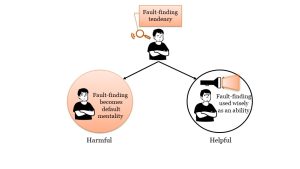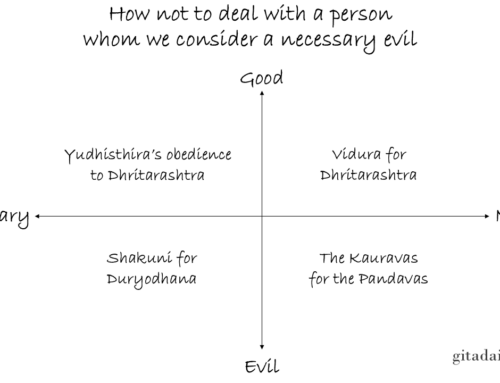 Some of us may have an innate tendency to notice the things that are wrong in anything we see. Significantly, this tendency can be seen as a special ability; after all, not everyone can see faults. Consider services like editing that center on finding grammatical and structural faults in a writing. Only few people can find such faults; those who can are not just appreciated but even remunerated.
Some of us may have an innate tendency to notice the things that are wrong in anything we see. Significantly, this tendency can be seen as a special ability; after all, not everyone can see faults. Consider services like editing that center on finding grammatical and structural faults in a writing. Only few people can find such faults; those who can are not just appreciated but even remunerated.
Still, responsible editors always remain conscious that finding faults insensitively or excessively or indiscriminately can hurt the author. Hurt so much as to damage the author-editor working relationship or even kill the author’s enthusiasm to continue writing. That’s why editors need to edit carefully and respectfully.
Similarly, if we want to use our fault-finding ability constructively, we need to first use that tendency to find fault with that very tendency. Its fatal fault is that it can take control of us and grow into our default mentality, whereby it uses us to harry others — rather than letting us use it to help others when appropriate. Once we realize and remember this fault of fault-finding, we can be on guard to prevent that tendency from becoming our default mentality. Being thus regulated, we can transform our fault-finding tendency into a usable ability that we can use to help others improve.
Pointing to such judicious use, the Bhagavad-gita (16.02) states that godly people are characterized by an aversion to fault-finding. Does it mean that they can’t find faults? They can; they just don’t delight in doing so. They find faults when it’s necessary and when it’s likely to have a positive result. What makes that positive result more likely is another virtue that the godly cherish and cultivate: gentleness. They learn to be kind, speak courteously and use words sensitively, thereby building a good relationship with others, which in turn increases the chances that others see their fault-finding as benevolent, not malevolent.
One-sentence summary:
If you like to find faults, find the faults in fault-finding — then the fault-finding tendency won’t become our default mentality, but will become a usable ability.
Think it over:
- How can fault-finding be seen as an ability?
- To use the fault-finding tendency constructively, what is the first use we need to put it to?
- How can Gita wisdom help us in using this tendency constructively?
***
16.02: Nonviolence; truthfulness; freedom from anger; renunciation; tranquillity; aversion to faultfinding; compassion for all living entities; freedom from covetousness; gentleness; modesty; steady determination; … – these transcendental qualities belong to godly men endowed with divine nature.
To know more about this verse, please click on the image



fault is inherent charecter of humanbeings